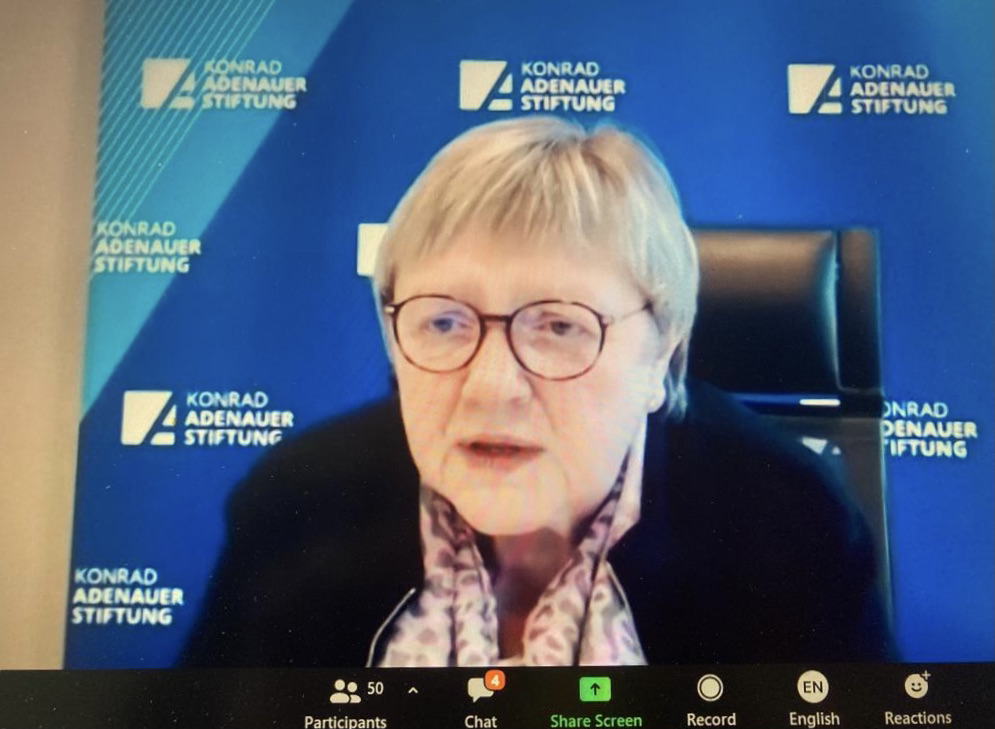The Council of Europe: guardian of human rights
Strasbourg
On 18 November 2022, a delegation of the European Seniors’ Union undertook a study visit to the Council of Europe in Strasbourg.
How can the EU react? / What can citizens expect?
On 17 March we had our video conference on ‘War, tensions and threats at the European borders – How can the EU react? / What can citizens expect?” During the period of the preparation of this meeting, we were confronted with the news about the advancing Russian army into Ukraine. The lasting peace that had been built up in Europe since the Second World War and strengthened in the 90s, is brutally beaten by a decision of an autocratic head of state. With as yet incalculable consequences. For Ukraine. For Europe. For the rest of the world.
“We think first of all about what this war means for the Ukrainian population. People who are our friends. Men and women we met and with whom we worked together. They dreamed about and worked on democracy, a solid civil society, and political parties. How will they react to the aggression? How will they continue their lives? We remain united in solidarity.
More than ever, we realize again. Freedom, solidarity and democracy, cannot be taken for granted. With this video conference we wish to express our solidarity with Ukraine we hereby consolidate and defend our European values against Putin’s war” – Our President An Hermans stated during the opening word.
Russia’s military invasion in Ukraine and its decision to recognise the non-government-controlled region of eastern Ukraine as an ‘independent state’ seriously undermines Ukraine’s sovereignty and territorial integrity and constitutes a serious violation of international law and agreements. The European continent has not faced such dramatic challenges to its sovereignty since 1945. Its borders were the result of the Second World War and were confirmed, in particular, by the 1975 Final Act of the Helsinki Conference.
The geopolitical tensions pose a particularly great challenge to the EU’s security and defense architecture, and Russia’s aggressive policy means that the situation in Eastern Europe remains extremely tense. Several EU countries have called for deeper cooperation between the EU and NATO to ensure effective deterrence, to strengthen NATO’s eastern flank and to help increase the resilience of the eastern neighbors and their societies to external threats.
The video meeting was about these security threats, how people in the Eastern European countries perceive them and what can be done to ensure security on the continent. We tried to explain the situation between Russia and Ukraine via the video conference with the help of three speakers. After the intervention of our interesting speakers, there was time for questions from the audience.
Many thanks to our interesting speakers:
